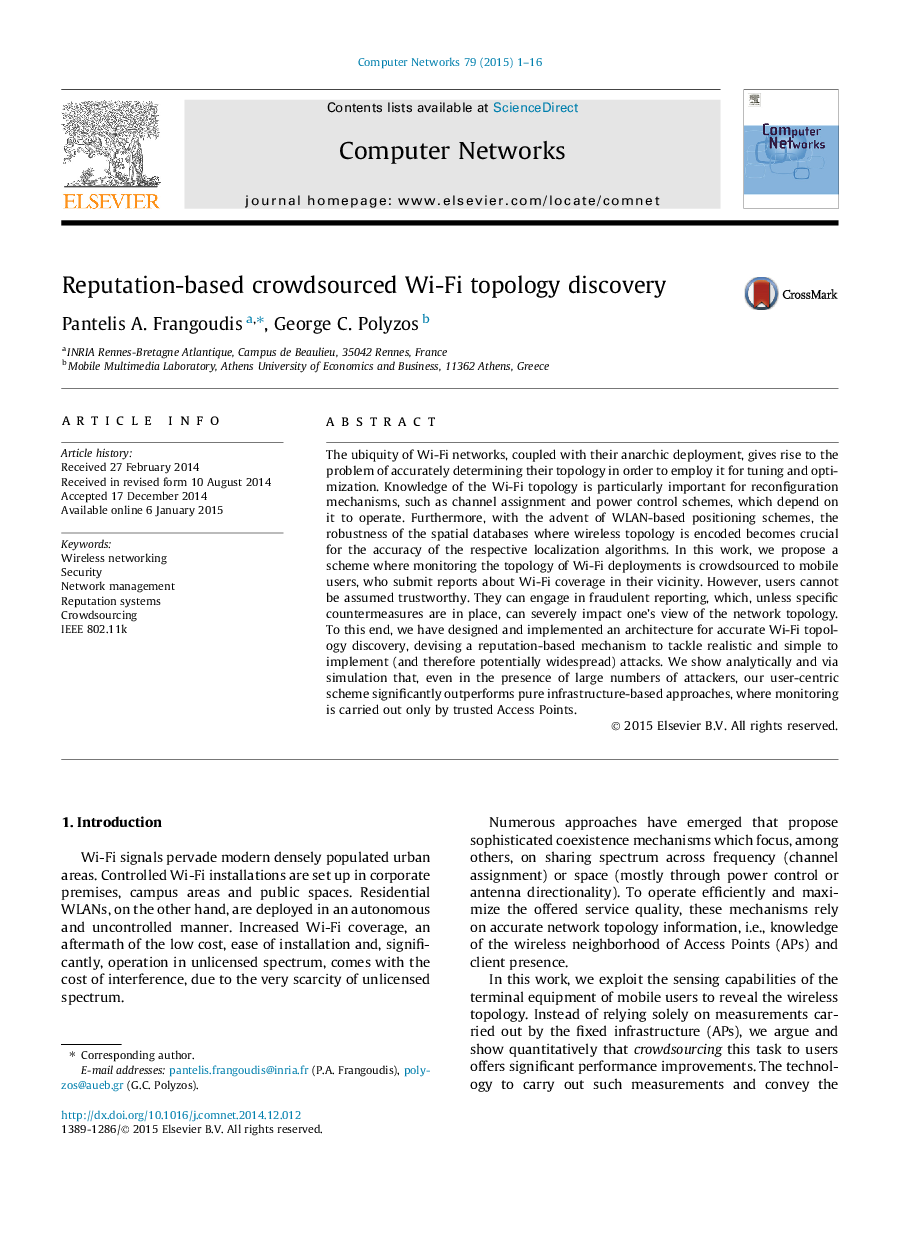| Article ID | Journal | Published Year | Pages | File Type |
|---|---|---|---|---|
| 450740 | Computer Networks | 2015 | 16 Pages |
The ubiquity of Wi-Fi networks, coupled with their anarchic deployment, gives rise to the problem of accurately determining their topology in order to employ it for tuning and optimization. Knowledge of the Wi-Fi topology is particularly important for reconfiguration mechanisms, such as channel assignment and power control schemes, which depend on it to operate. Furthermore, with the advent of WLAN-based positioning schemes, the robustness of the spatial databases where wireless topology is encoded becomes crucial for the accuracy of the respective localization algorithms. In this work, we propose a scheme where monitoring the topology of Wi-Fi deployments is crowdsourced to mobile users, who submit reports about Wi-Fi coverage in their vicinity. However, users cannot be assumed trustworthy. They can engage in fraudulent reporting, which, unless specific countermeasures are in place, can severely impact one’s view of the network topology. To this end, we have designed and implemented an architecture for accurate Wi-Fi topology discovery, devising a reputation-based mechanism to tackle realistic and simple to implement (and therefore potentially widespread) attacks. We show analytically and via simulation that, even in the presence of large numbers of attackers, our user-centric scheme significantly outperforms pure infrastructure-based approaches, where monitoring is carried out only by trusted Access Points.
